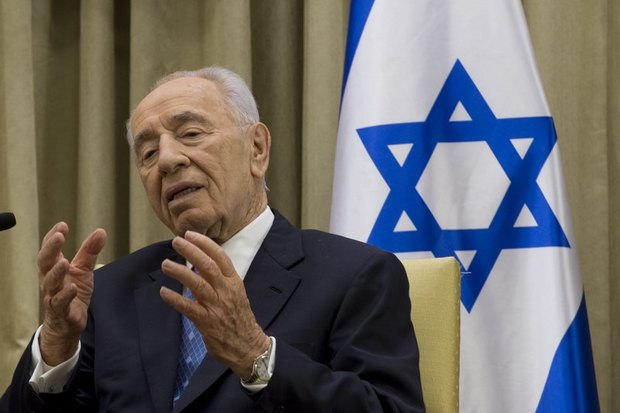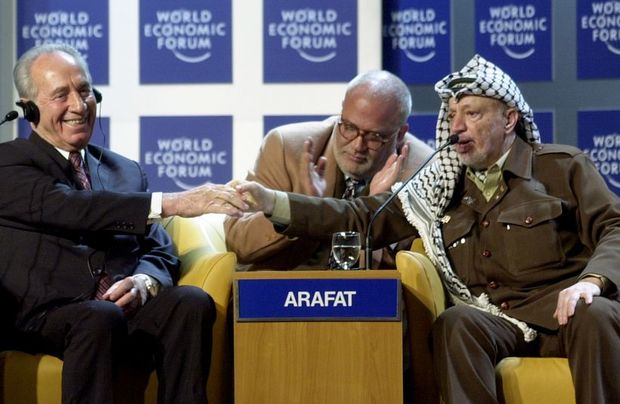Evgeny Satanovsky: 'Shimon Peres was romantic, adventurous, powerful, too focused on himself’
A point of view of the famous lobbyist of Tel Aviv about the departed Israeli state figure
A famous political figure Shimon Peres, who occupied the posts of the Prime Minister and the President of Israel, passed away when he was 94 after a two-week coma. The president of the Middle East Institute, an expert on the politics of Israel Evgeny Satanovsky told in the interview to Realnoe Vremya about contradictory figure of Peres and how the compatriots remembered him.
Romantic, adventurous, power-loving person
Mr Satanovsky, what achievements and failures of Shimon Peres as a politician do you see?
His achievements are well known: the nuclear program of Israel, the victory over hyperinflation in the 1980s — the severe economic crisis in Israel after the war in Lebanon.
His main strategic blunder nullifying all his achievements is the agreements with Arafat, which we call the Palestinian-Israeli peace process. In fact, they destroyed all the possibilities of normalizing Palestinian-Israeli relations. Sluggish terror war — absolutely deadlock mechanism to exit the crisis.
How is he remembered as a military leader?
He is not remembered as a military leader anyhow. In fact, he was not a military leader. He was a civilian and held positions that were relevant to the defense. He never proved himself to be meaningful, despite adventures like 'Grapes of Wrath' (a military operation of Israel against Hezbollah in 1996 – editor's note). Perez was extremely romantic, adventurous, power-loving person, too focused on your own figure and his own position in the political system of Israel. But even his most ardent supporters cannot call him a commander.

'Perez was extremely romantic, adventurous, power-loving person, too focused on your own figure and his own position in the political system of Israel.' Photo: rtvi.com
Bonuses from Rabin's murder
Shimon Peres in different years held various positions — of the Prime Minister and the President. Which of these positions is more important in Israeli politics? Did the value of a position change depending on the Perez holding of it?
The thing is that in Israel a Prime Minister is always a person who really runs the country. The President is a ritual office. But for Perez it was significant, because very honorable. He wanted to be the President. At the end of his life, he succeeded. Perez was not able to win any election, he never won in his life, he took the posts always accidentally. As soon as he got into the association of the elections, he always lost these elections. The members of the Israeli Parliament decided to give him the post of President as a veteran of politics without a choice between rival candidates — and they did it. But, in fact, the country is ruled by a Prime Minister. When he became Prime Minister, after the death of Rabin, this post really meant something.

'He quietly hated Rabin, despite the fact that they were from one camp, and he was very jealous of him. It is no coincidence that Peres is still much blamed for the murder of Rabin, if not accused directly.' Photo: il4u.org.il
Can Yitzhak Rabin and Benjamin Netanyahu be called his political opponents?
Anyone can be called his political opponent because he was a man of conflict and he used to argue with many people. He quietly hated Rabin, despite the fact that they were from one camp, he was very jealous of him. It is no coincidence that Peres is still much blamed for the murder of Rabin, if not accused directly: if he is not the organizer of this murder, as a minimum, they say that he got benefits and bonuses from that. And it's true.
As for Netanyahu, in fact, he has diametrically opposite course, as well as with Sharon. But Sharon was from the generation of Peres but Netanyahu is from another generation of politicians. It is always a conflict of people.
In 1994, Peres was awarded the Nobel Peace Prize along with Yitzhak Rabin and Yasser Arafat. Some believe it to be unfair...
He blackmailed the Nobel Committee, saying that if he, in violation of all rules, will not be given the Nobel prize, there would be no peace process. It was cheaper to give this award. So, he deserved. A good racket is also a merit.
It is also an element of big politics. Was the Israel's withdrawal from the Gaza Strip a strategic mistake, for what he was blamed later, or not?
How is it related to Peres? Actually, Perez was nothing. It was the decision of Ariel Sharon, who was the Prime Minister and was blackmailed by the left Prosecutor's office by the fact that they would put his sons to prison (of Sharon – editor's note). Then he left the Gaza Strip and went into a coma but the sons were still imprisoned. Yes, it was one of those stupid things that Israel did during its history. But what to do now? It is impossible to admit that they did something stupid. There are still many advocates of this in very large numbers, including among the generalship.

'He did not treat one way or the other either the Arabs or the Muslims. He was the dove of peace, so he was supposed to love everybody. So, he tried to be friends with everyone — it was a great folly.' Photo: weforum.org
Dove of peace
You have stated that Perez used to fail all the elections. He is even called an always losing politician. Why does he also have a strong image of a successful loser?
He was very cunning. Gorgeous, the best schemer in the political establishment of Israel. He could always find a place in politics for himself, even when it seemed that the next day he would be thrown into the political dustbin. Perez was even predicted the end of the career in the 1960s. Everyone passed away, of left the politics, but he was still afloat and at the top.
How is he treated in Israeli society?
In different ways: someone admires, someone hates, someone despises, someone is proud of.
What was his attitude to the Muslims?
He did not treat one way or the other either the Arabs or the Muslims. He was a dove of peace, so he was supposed to love everybody. So, he tried to be friends with everyone — it was a great folly. Peres did not know the Arabs. He was a Belarusian person and he would be a great third secretary of a regional Committee of Komsomol somewhere in Mogilev. But the fate brought him to Palestine, and then to Israel, in which the Palestinian territory turned to. Accordingly, he became a big Israeli politician and not a small party Belarusian bureaucrat. So, he did not know the Arabs and did not understand them. And the Arabs did not know him and did not understand, although successfully used. He had exactly the same attitude towards the Muslims, as a person who tries to show every goodwill but, at the same time, he did not understand the Muslim world at all.
Reference
Evgeny Satanovsky — a Russian Oriental Studies scientist, economist and political scientist. The president of the scientific center the Institute of the Middle East. Candidate of Economics.